Strategy No. 2: Charity and Welfare
The Muslim Brotherhood has long organized and kept the tradition of networks of schools and hospitals for the poor and elderly people. The system of financial donations from the faithful supporters is providing food and clothes, medical doctors are serving without charge for the salary in Brotherhood clinics and hospitals, and Islamic schools are combining religious education with some other topics of more political nature. Brotherhood tutors are participating in the assistance to the higher level students to prepare themselves for the examination. This practice is vital for those poor students as they cannot afford to be tutored by their teachers or by the scripts (notes) of their professors. In essence, in addition to fulfilling a religious education, the system of welfare services offered by the Muslim Brotherhood is providing an efficient opportunity for the recruiting new members for the organization and creating a very positive image of the Muslim Brotherhood as a caring organization that is capable to meet the needs of the Muslim ordinary people. In fact, the Brotherhood system of welfare programs ensures that poor youth will have some chance of finding jobs in the civil service and military making them in this way a potential resource should the occasion arise.
Strategy No. 3: Political activism
From a very political perspective, the Muslim Brotherhood is a very large and powerful pressure group that is involved in the battle to force the Muslim secular governments across the world to administer their states and Muslim societies according to Islamic law and Quran. Among all Muslim countries, the political agenda of the Muslim Brotherhood is the best and most fully developed in Egypt – a country in which the Brothers are allowed to operate as a religious organization. The Egyptian constitution prohibits religious organizations to participate in political life but in practice, the Muslim Brotherhood is using one of Egypt’s meaningless opposition parties to serve as a front for its political activities. In addition, many Brotherhood’s candidates are running for parliament as independents and, despite the government’s opposition, scored dazzling victories in the first or primary round of Egypt’s 2000 parliamentary elections.
It was so dazzling Brotherhood’s victory in the first round that the police openly prevented supporters of the Muslim Brotherhood from casting their ballots in the second round of the elections. The success was repeated in the 2005 elections with the Brotherhood having captured 88 seats in parliament (People’s Assembly) before massive police brutality and vote-rigging stemmed the Brotherhood tide. The message became, nevertheless, quite clear: if free voting is allowed, the Muslim Brotherhood will win what happened in 2011/2012. In other words, after the Egyptian Arab Spring protests in 2011, the Muslim Brotherhood covered by civic political the Freedom and Justice Party won almost half of the seats in parliament while its leader Mohamed Morsi won the 2012 presidential elections. Only the US-Israeli-backed military coup in Egypt could prevent further rising in the political power of the Brotherhood.
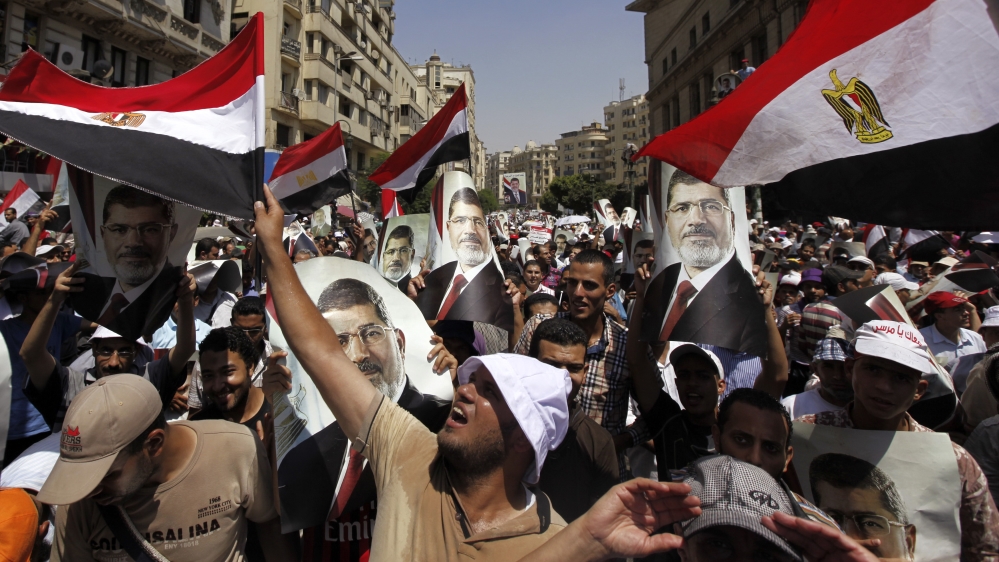
At H. Mubarak’s time, the political aim of the Brotherhood was to push a corrupt and inept H. Mubarak’s regime ever closer to disaster. In Egypt, the only real opposition party was the Muslim Brotherhood which representatives used parliament as a platform for airing their views to a national audience, publicizing the obvious flaws of Mubarak’s corrupted regime, and opposing the legislation as anti-Islamic. The Muslim Brotherhood lacked the power to pass new legislation, but it had the power to weaken from within the regime of H. Mubarak. The Brotherhood knew how to use its political influence in order to win unparalleled economic, medical, and personal benefits for its members, victories that have extended its popularity and demonstrated at the same time its real capacity to get things done.
For the former Mubarak regime, it was extremely threatening the direct and indirect control of the student associations in Egypt by the Muslim Brotherhood’s organization. It is known that students in the Islamic states are protesting in the streets for the slightest provocation, making them the most volatile actors in the politics of the Middle East. If student protests show signs of promise, other groups will join them. Remember that in 2011, it was the students who got things started. The regime of Hosni Mubarak and his ruling National Democratic Party did everything to control university life in Egypt but with minimal success. Nevertheless, the Brothers are particularly against the American University in Cairo (the AUC) for the reason that it is a bastion of secularism in the high school system in Egypt.
The so-called “control of the street” the Muslim Brotherhood obtains by control over professional associations, student unions, community organizations, and mosque complexes in Egypt. It is a very fact that at a moment’s notice, a signal from the Brotherhood can send demonstrators to the street not only in Cairo but in other major cities in Egypt too. As the events of Arab Spring in 2011 proved, Cairo is the nerve center of Egypt, and to disrupt Cairo means, in fact, to disrupt the whole of Egypt. In practice, the activists of the Muslim Brotherhood do it so frequently, usually to oppose Israeli oppression of the Palestinians or U.S. policies in Iraq. However, the Muslim Brotherhood is not the only group in Egypt that is involved in the anti-U.S/Israeli protests on the streets as many of which begin as spontaneous explosions of frustrations and anger. The Brothers, nevertheless, are active participants in the protests since their establishment in 1828 with the ability to inflame the street.
The Brotherhood’s efforts to infiltrate its members (of religious activists) to both military and security services are a less visible and noticeable phenomenon. Why it is important? It is important for the very reason that Egypt was and is, basically, a military regime being dependent on military support for its survival. The regime knows well that both jihadists and the Brothers are enjoying broad support and sympathies in the military, a fact that is making them very reluctant to use the regular army against the Brotherhood. Rather, most anti-Brotherhood and anti-jihadist activities are carried out by special security forces in which the regime has greater confidence. Even so, the Brotherhood’s support within the military provides a measure of security from government repression.
The Muslim Brotherhood, violence, and the question of stability
The Muslim Brotherhood advocated an all-time comprehensive social reform program aimed at bringing about social justice by peaceful means rather than using violence and revolutionary instruments. According to the program, social justice can be achieved not by individual acts of charity but by legal government handouts, thereby ensuring the equitable redistribution of funds. The organization was opposed to any form of particular nationalist ideology as it was considered a Western concept and it was calling for the revitalization of the umma by peaceful struggle.
The Brotherhood considers violence in principle to be counterproductive with the focal argument that it serves only to kill innocent people and to punish Muslim populations by destroying the economy. For example, the series of jihadist terror acts for two decades simply devastated the tourist industry of Egypt, living tens of thousands without work. The Brotherhood as well condemns jihadist violence for giving the Islamic movement a bad image and name and for giving enemies of Islam a good pretext to launch a new crusade against Islam. The Muslim Brotherhood claims that governments are more powerful than the Islamic groups. Therefore, it would be little of benefit to fight a war that will cripple the Islamic movement and, in fact, ruin its good opportunity to achieve an Islamic state by peaceful means. In sum, it looks that there is a little doubt that the Brotherhood’s capacity and will for using violence remains. However, although the Muslim Brotherhood denies that it possessed armed paramilitary troops (militia), during the December 2006 military demonstrations by the Brotherhood’s students at Al-Azhar University revealed that the organization possesses an increasingly active military wing.
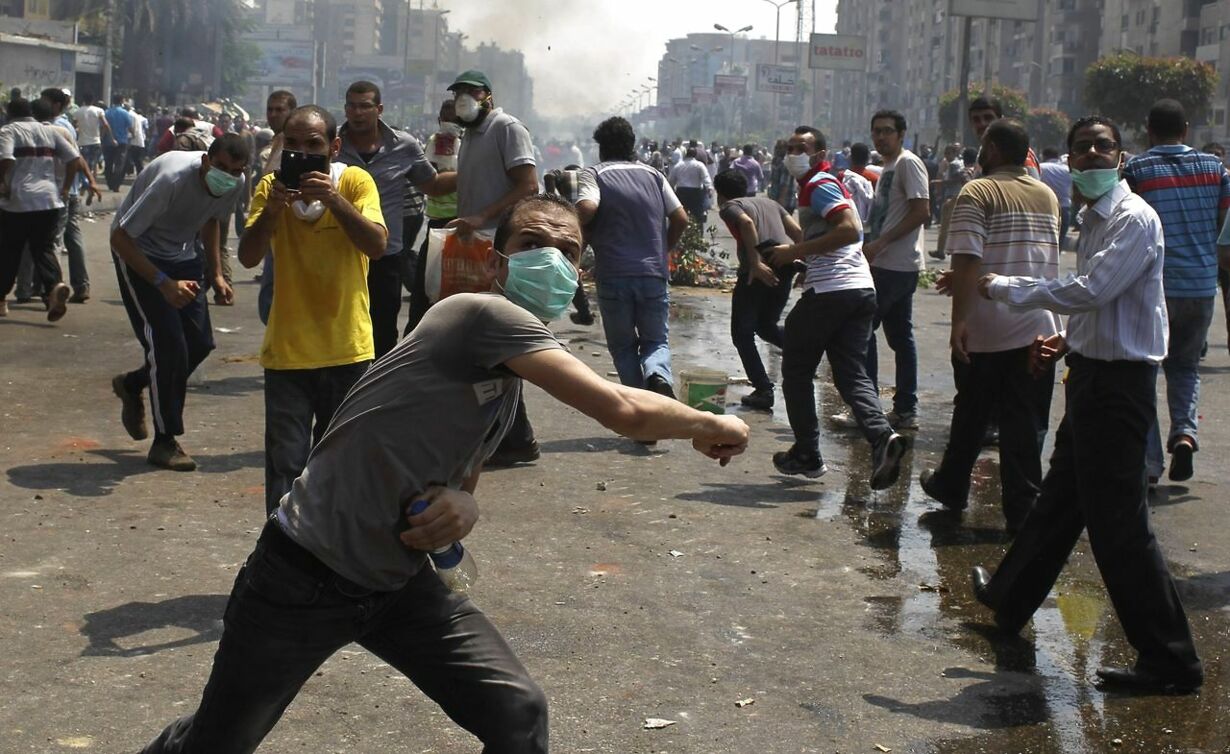
Historically, an armed wing – the “secret organization” – has been created within the organization of the Muslim Brotherhood in the early 1930s, whose military leadership was entrusted to a close friend of Hassan al-Banna (founder of the Muslim Brotherhood), Salah Ashmawi. The military wing was, actually, operating under the umbrella of a Muslim scouting association not to attract the attention of the British occupation authorities but it grew rapidly into a full-fledged armed entity. For instance, its members have been fighting alongside supporters of the Grand Mufti of Jerusalem during the 1936 Palestinian uprising or alongside Arab forces during the 1948 Arab-Israeli War. In fact, it was this conflict in 1948 in which the Brotherhood acquired combat experience and, therefore, as a result, the Egyptian government, concerned at the Islamic militias’ revolutionary capacity, ordered their disarmament. Hassan al-Banna was forced to accept that move probably as he was not at that time prepared enough to go to the open confrontation with the government. In order to minimize the level of suppression of his movement, he claimed that it was a break-away group, marginalized by the failure in the 1948 war against the Zionist Israel, which against his orders was engaged in guerilla warfare against the British forces near the Suez Canal. Nevertheless, despite his denials, evidence was mounting as to al-Banna’s responsibility for political violence against the government of King Farouk. He and his Brothers have been accused of a series of terror acts including murders in 1948 of an Egyptian judge, two British officers, and the Egyptian PM. Finally, al-Banna was assassinated on February 12th, 1949, and almost 4000 of his organization’s members were arrested. His followers maintained that the Egyptian government plotted to kill him and, in fact, was responsible for his death.
Concerning the Mubarak regime, the Brotherhood offered it a simple deal to allow the organization to promote its religious agenda peacefully, and in return, the Brotherhood will allow Mubarak to rule. Egyptian government politicians will enjoy all the benefits of office and the wealth that became accumulated to the ruling class; the Muslim Brotherhood will help Egypt to become a more Islamic state. From Hosni Mubarak’s viewpoint, giving the Muslim Brotherhood broader scope for its activities would isolate the Islamic jihadists and other radical extremists by providing more moderate Muslim groups with a legitimate outlet for their concerns. However, H. Mubarak at the same time feared a broad-based Islamic party more than he feared the jihadists. Before the 2006 parliamentary elections in Egypt, the U.S. administration remained silent as Egyptian police unleashed the clubs and rifle butts of the Brotherhood’s supporters followed by the arrests of thousands of the Brotherhood leaders and members.
The political deal that the Muslim Brotherhood offered to Hosni Mubarak in the 1980s was already accepted in the 1950s by the King Hussein of Jordan when at that time the young king, then a teenager, used the Brotherhood to counter the leftists and Palestinian radicals intent on overthrowing his shaky monarchy. In fact, and the king and the Brotherhood prospered. However, in 2000‒2005, the U.S. administration was putting increasing pressure on Jordan’s new king, Abdullah II, to curtail the Brotherhood’s support for the Second Intifada (uprising) in Palestine. Nevertheless, that was a tall order as some 70% of Jordan’s population is of Palestinian origin, and support for the Palestinian uprising was the key element in the program of the Muslim Brotherhood. It has to be noticed as well that the line between the Muslim Brotherhood and Hamas in Jordan is also blurred as the Palestinian resistance group, Hamas, was, in fact, founded as the military wing of the Jordanian Muslim Brotherhood, and the Brotherhood has been instrumental in brokering tensions between Hamas and the Jordanian king.
There were strong relations between the Muslim Brotherhood and the government of Yemen in the 1990s, mostly thanks to the political role of the Brotherhood in easing tensions between Yemen and neighboring Saudi Arabia in the aftermath of Iraq’s invasion of Kuwait in 1990. Much to the irritation to the Saudi puppet government of the U.S., Yemen had supported Saddam Hussein, maybe in the belief that the next to fall is going to be the Saudi anti-democratic monarchy. As it did not happen, the Yemeni workers were expelled from Saudi Arabia. A few years later, Saudi Arabia supported the rebellion in South Yemen. The intersections of the Muslim Brotherhood succeeded to ease both crises, and the Brotherhood became a legal political organization as the Yemeni Society for Reform. In fact, rather than opposing the government, the Muslim Brotherhood became its supporter. Up to the Arab Spring in 2011, Yemen was an ally of the U.S. in its struggle against jihadists but the open question remained up today: Whether it can convince the U.S. that the Muslim Brotherhood is a peaceful organization or at least not anti-American?
Syria, by contrast to Yemen or Egypt, is treating the Muslim Brotherhood as a terrorist organization. As a matter of fact, the Brotherhood launched a series of military actions in Syria in the early 1980s provoking a civil war. Consequently, the Syrian government launched military attacks on the Muslim Brotherhood, killing between 10.000 and 30.000 of its members. Nevertheless, the massacre was terrible. Membership to the Muslim Brotherhood became a crime that was punishable by death. The leadership of the Brotherhood in Syria, therefore, was forced to flee to Jordan, West Germany, and Iraq, as it was done by most of its active members.
The answer by the Brotherhood was quick and bloody: launching terrorist strikes into Syria in the mid-1980s, but the German-Jordan wing of the Syrian Brotherhood has since fallen in line with the nonviolent position of the Cairo leadership. Indeed, the Brotherhood HQ in Egypt applied to the Syrian government for permission to return to Syria as a cooperating partner of the ruling Ba’ath party but Damascus was rejecting the offer as the Brotherhood rejected to take responsibility for the terrorism campaign in Syria in the early 1980s. According to the Syrian leadership of the Muslim Brotherhood, that was exactly Damascus that had created the political crisis by attempting to liquidate the Brotherhood. Nevertheless, for the Brotherhood in Syria, it was of the focal importance to place its members in positions of power either by working with the government or by attempting to overthrow it. The U.S., for its part, appears to be supporting the Brotherhood’s efforts to overthrow an Assad’s government accusing it of sponsoring terrorism.
Like in Syria, something similar was going on in post-Saddam’s Iraq. In other words, it was the same practice of making odious alliances for the sake of gaining political influence. Although hostile to the U.S. occupation, the Iraqi Islamic Party (an affiliate of the Muslim Brotherhood) participated in the destruction of Saddam Hussein’s authority together by the U.S. military. However, its position looks to be logical. The Iraqi Islamic Party is sharing the fundamentalist goals of the ruling Shi’a elite and can represent the interests of Iraqi’s Sunni minority better than either the former Ba’athist supporters of Saddam Hussein or the jihadists. In this case, both sides the Muslim Brotherhood and the U.S. government found themselves on the same side. Much the same is true throughout the region of the Middle East including Yemen or Libya.
However, the Zionist government of Israel is uneasy about American’s backdoor flirtations with the organization of the Muslim Brotherhood. Hamas, the Palestinian (Gaza) wing of the Muslim Brotherhood, today is representing the core of the Arab-Palestinian resistance to the Israeli occupation of the West Bank and Gaza Strip. Reflecting its Brotherhood heritage, Hamas has refused to accept Israeli’s right to maintain a Jewish state on Islamic land. Nevertheless, we have to keep in mind that this does not necessarily mean that two parties cannot coexist together.
To be continued
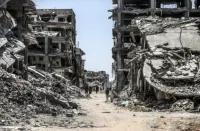
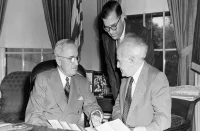
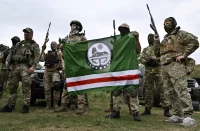




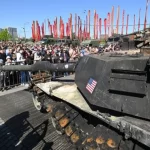






Comments